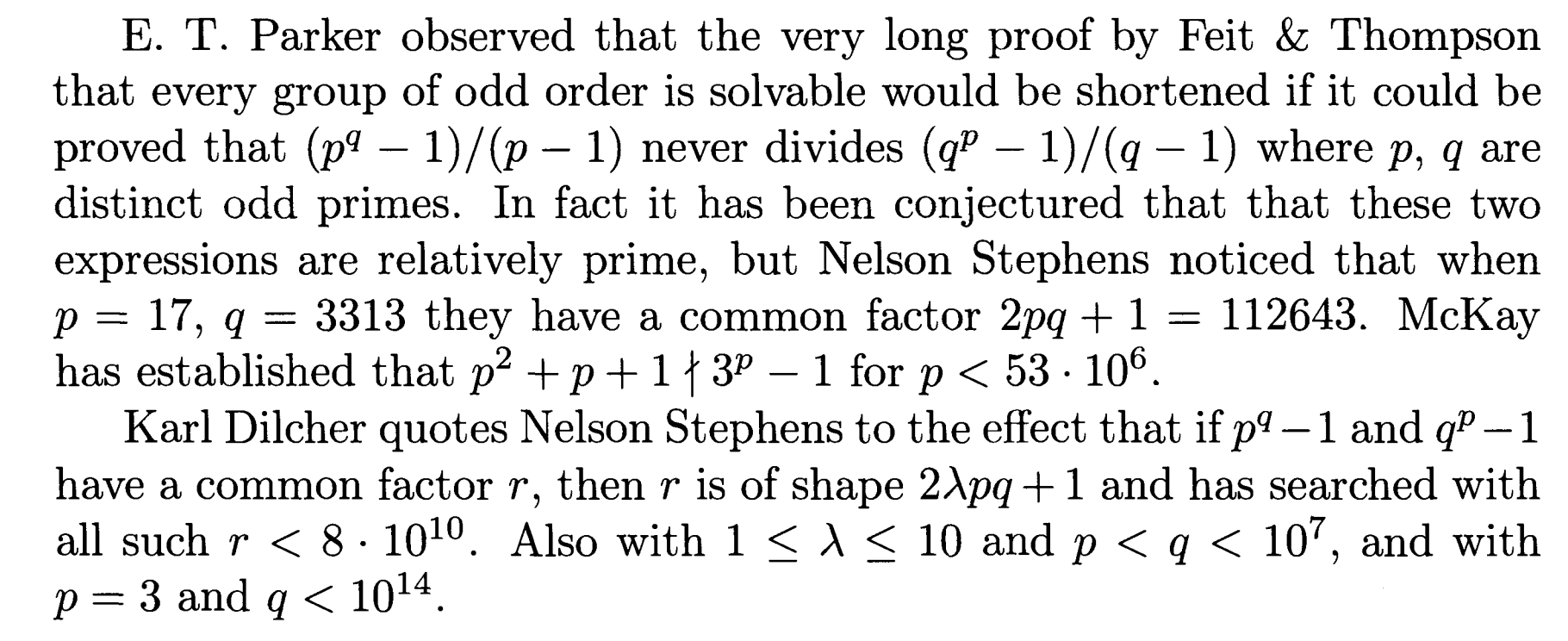Regarding Feit-Thompson Conjecture [FT62] mentioned in Dave Benson's answer, which states that for any two distinct odd primes $p$ and $q$, the integer $\frac{p^q - 1}{p - 1}$ never divides $\frac{q^p - 1}{q - 1}$, I am unsure to what extent this has been verified. Below is a (parallelized) Python script that confirms the conjecture holds for $p, q < 50000$ within 35 hours. It also identifies the pair $(p, q) = (17,3313)$, discovered in [S71], as noted in JoshuaZ's comment, for the sole non-coprime example in this range. The range could be significantly improveimproved by the method in this paper[S71].
AnBonus question: Is there any other checkingpair $(p,q)$ of this kind?
More recent checkings can be found in Guy's book (Unsolved Problems in Number Theory),[G04] at B25 on page 125:
The last ckecking mentioned above is [DK04]. See also [M09].
Bonus questionReferences
[FT62] Feit, Walter; Thompson, John G. A solvability criterion for finite groups and some consequences. Proc. Nat. Acad. Sci. U.S.A. 48 (1962), 968--970.
[S71] Stephens, N. M. On the Feit-Thompson conjecture. Math. Comp. 25 (1971), 625.
[DK04] Dilcher, Karl; Knauer, Joshua. On a conjecture of Feit and Thompson. High primes and misdemeanours: Is there any other such pairlectures in general?honour of the 60th birthday of Hugh Cowie Williams, 169--178, Fields Inst. Commun., 41, Amer. Math. Soc., Providence, RI, 2004.
[G04] Guy, Richard K. Unsolved problems in number theory. Third edition. Problem Books in Mathematics. Springer-Verlag, New York, 2004. xviii+437 pp.
[M09] Motose, Kaoru. Notes on the Feit-Thompson conjecture. Proc. Japan Acad. Ser. A Math. Sci. 85 (2009), no. 2, 16--17.

